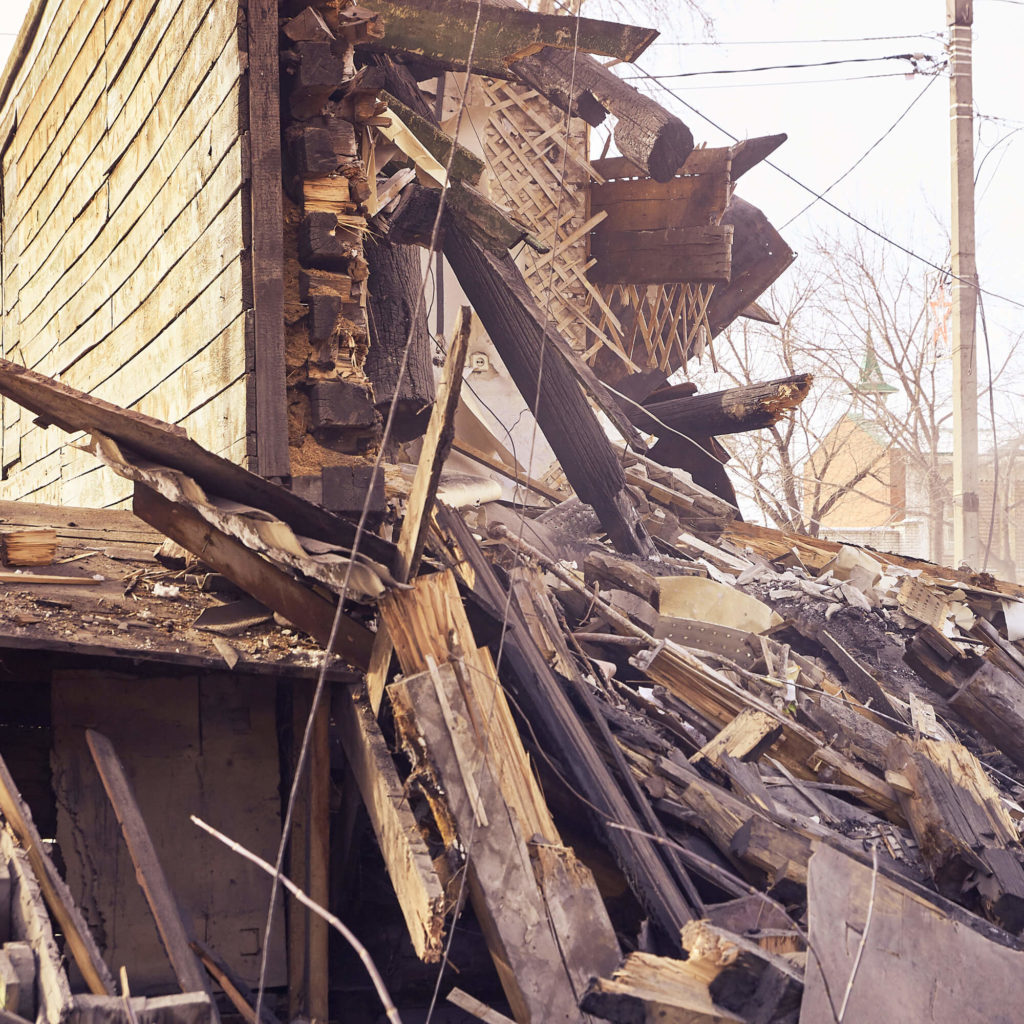House fires cause an average of $6.7 billion in direct damage every year. But for homeowners who have suffered a house fire the problems extend far beyond the money aspect of the damage.
Homeowners face the loss of personal property that is irreplaceable after a house fire. Even in cases where they have followed all fire safety precautions and escaped injury, the emotional toll can be heavy.
One of the biggest questions for families after a fire is should you try and rebuild? Rebuilding a house after a fire can be a lengthy process that requires investments in time and money.
If you decide to sell, it’s important to do so early rather than waste time and money. Make sure you consider these issues first:
What is The Extent of The Damages?
Not all house fires are alike. Some homeowners might face a fire in the kitchen or bathroom that doesn’t spread to the entire home.
In other cases, the fire damage might have spread so far that the house is nearly beyond repair. Some fire damaged homes almost have to be leveled to start again.
But since most fires start in the kitchen you may have damage limited to that part of your house if the fire was stopped in time.
In any event, it is important to assess the damage. And anyone who has suffered a house fire knows the water and chemical damage from the fire department is extensive too.
The amount of damage will determine the timeline for repairs.
What Does Your Insurance Agency Say?
In many cases, it is helpful to get the input of your insurance agency along the way. They are a partner that can help you assess the timelines, payments, and damages to your home.
Plus, they have the benefit of having more experience with fire damage and the process for rebuilding. As they work with families all the time on rebuilding a house after a fire they should be able to provide valuable insight.
Be sure to inquire about the costs, timelines, and project requirements to rebuild your home. You should also get insight into the temporary housing situation while you rebuild.
While you weigh the pros and cons of rebuilding or selling ask your insurance agent.
Rental Market Considerations
Depending on the damage to your home you may not be able to occupy the property as you rebuild. You may find that your damaged house is both uncomfortable and unsafe to reside in as you fix the damage.
In those cases, you will be facing temporary housing for some period of time as your rebuild. For some families, this is temporary as they fix one section of the house, move back in, and continue construction.
But in most cases, there will be a need for temporary housing. Are their rentals available and reasonable in your town or region?
It can be emotionally upsetting to move from place to place. Factor in the cost and time for rentals first.
Get Input From a Traditional Realtor
You may find that selling is an easier task than you think. Some homeowners are hesitant to contact a realtor because of the damage to their home after a fire.
They think it is unsellable or a wreck. In many cases it is difficult to sell a fire damaged home, this is true.
But in some markets, there are eager buyers who are looking for opportunities for great locations and great investments. A realtor can give you perspective on your local market and the possible process of selling your home.
It doesn’t cost you anything to talk to a good realtor. Have them provide input on your selling options.
Selling As-Is
Traditional sales or rebuilding aren’t the only courses of action when facing fire damage to your home. Selling as-is is often the best approach for homeowners as they can speed up the process of getting resettled.
An as-is sale allows you to get a cash offer and avoid real estate commissions that will only add to the loss of value of your home.
But remember, the benefit of as-is sales is they cut down on the cost and time of rebuilding. Too many homeowners fail to factor in the struggles of trying to rebuild while living in temporary housing.
It adds stress to the typical stress of moving.
Independent Analysis
Your insurance agency is a great resource but it shouldn’t be the only one you make great use of. When considering rebuilding after a fire, make sure you get independent input from contractors on the cost and process of rebuilding.
And during that process, it is worth checking their references and testimonials. You need quality information on both the cost as well as the timing for rebuilding.
Checking into their references will give you an idea of how fast you can expect the work done and how much you may have to spend on temporary housing.
The good news is independent pricing may give you different options than your insurance agency supplies. You want as many options as possible.
A Combination of Factors
The blessing and the curse of rebuilding after a fire is the parties involved. You have to navigate insurance, rentals, family considerations, and contractors.
But you can leverage these factors to your advantage. With a fast cash offer, you can use the sale as well as insurance proceeds to buy a new home right away.
Sell Your Home Fast Instead
For homeowners who realize the downside of trying to rebuild after a fire the question is often how to sell. Many homeowners don’t realize how easy it is to sell a home as-is.
Rebuilding a house after a fire isn’t the only option.
The good news about selling a home as-is is that you can avoid the lengthy and costly process of rebuilding.
And if you’ve decided it’s time to move on we can help. BiggerEquity provides cash offers for home as-is.
We are accredited with the Better Business Bureau and buy homes all over South Florida.
Don’t hesitate when it comes to selling your home and moving on. Contact BiggerEquity today.





























